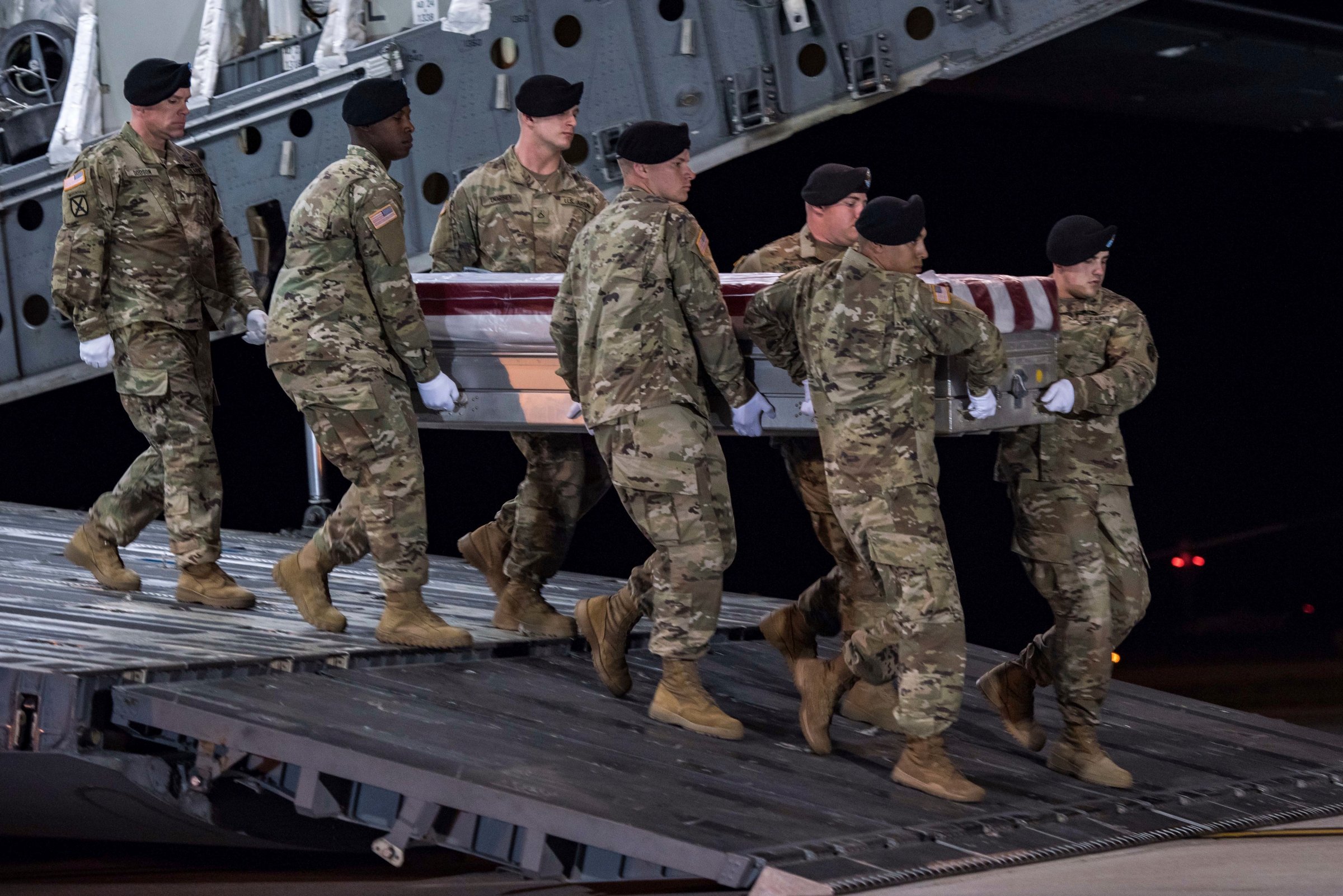
On Oct. 30, Secretary of Defense James Mattis and Secretary of State Rex Tillerson testified in front of the Senate to shed light on the tragedy in Niger. But one question went conspicuously unanswered: Why were our troops there in the first place? Secretary Mattis claimed the U.S. military presence was in “furtherance on U.S. national security interests.” But at no point did either Donald Trump Administration official shed light on the mission or long-term strategy in the region.
That most Americans — and many members of Congress — first learned about our extensive operations in Niger after four of our brave soldiers were killed is indicative of just how far we’ve distanced ourselves from these ongoing wars.
But as someone who has sounded the alarm on our endless wars for many years, it grieves me that it took such a heinous tragedy for Congress to finally pay attention.
The constitution gives Congress — not the President — the authority to declare and authorize war. But for the past decade and a half, Congress has abdicated our constitutional responsibility to debate matters of war and peace.
In the days after the tragic attacks on September 11, 2001, Congress passed what amounted to a blank check for any president to wage war anywhere, in perpetuity. As the lone vote against this blank check, known as the 2001 Authorization for the Use of Military Force (AUMF), I feared the implications of relinquishing congressional war-making duties to the executive branch.
Sadly, in the 16 years since that vote, these fears have been borne out. An unclassified report that I requested from the Congressional Research Service identified 37 military operations, in 14 different countries, that were justified under the 2001 AUMF. These actions range from drone strikes in Yemen and Libya to indefinite detention at Guantanamo Bay. It’s even been used to justify warrantless wiretapping on our own soil.
The result of this is an emboldened, unconstrained executive branch that can — and does — deploy service members around the globe. With no checks and no balances, Congress is relegated to the sidelines while the White House conducts wars without oversight.
Even Congressional Republicans have begun to recognize the dangerous consequences of an administration with unlimited war powers. Earlier this year, my amendment to sunset the 2001 AUMF passed the House Appropriations Committee in an overwhelming, bipartisan vote. This amendment would have given Congress eight months to draft and debate a new authorization to replace the current AUMF — ample time to ensure congressional input. I’ve introduced versions of this amendment at least half a dozen times over the years, but this was the first time it passed.
This vote sent a clear message to Republican leadership: Give us a debate on war. Unfortunately, as we saw with my amendment, Speaker Paul Ryan will stop at nothing to prevent this debate and vote from moving forward. Before my amendment could even make it to the House Floor, Speaker Ryan and Republican leadership used shady and undemocratic procedural maneuvers to strip it from the bill before it reached the Rules Committee. In doing so, they denied the American people the best opportunity in recent memory to get this blank check off the books.
But Republican leadership won’t be able to avoid this debate forever. After 16 years, there is finally a bipartisan consensus on Capitol Hill that we need to stop ducking and dodging this war vote. And Secretary Mattis’ assertion that a new and updated war authorization is “not legally required” is more evidence of just how overly broad the 2001 AUMF is.
If Republican leadership is unwilling to follow the Constitution and do its job, then they should find a new line of work. Now more than ever, we need to bring sunlight, strategy and oversight to our endless wars.
More Must-Reads From TIME
- The 100 Most Influential People of 2024
- The Revolution of Yulia Navalnaya
- 6 Compliments That Land Every Time
- What's the Deal With the Bitcoin Halving?
- If You're Dating Right Now , You're Brave: Column
- The AI That Could Heal a Divided Internet
- Fallout Is a Brilliant Model for the Future of Video Game Adaptations
- Want Weekly Recs on What to Watch, Read, and More? Sign Up for Worth Your Time
Contact us at letters@time.com